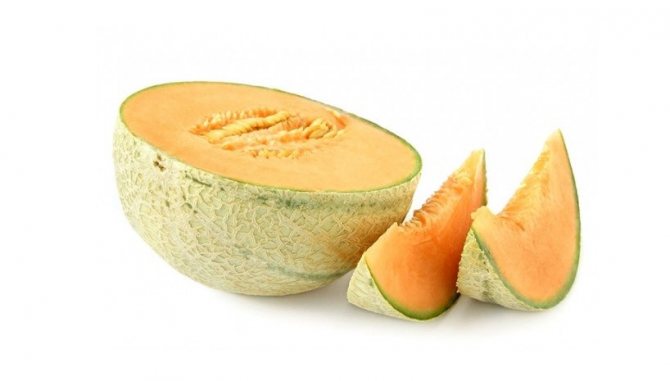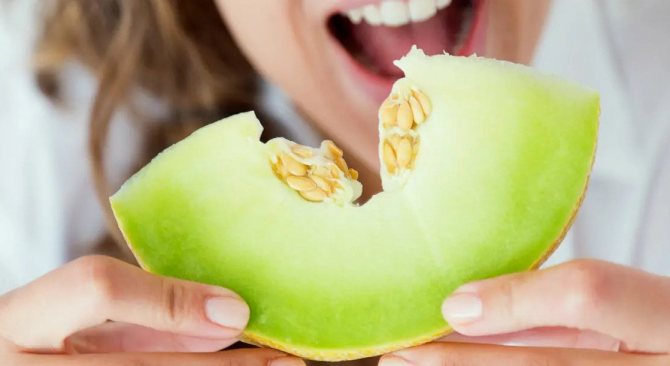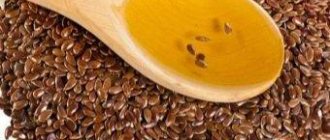The period of breastfeeding is characterized by all sorts of prohibitions, including those regarding food. After all, any product can affect the quality of milk and cause negative reactions in the child. A very common question among women is whether a nursing mother can eat melon? Let's figure it out.
Where do these concerns even come from? Young mothers are justified in their doubts, because in addition to the beneficial properties that fruits in general and melon in particular have in abundance, there may also be negative effects. And given the not always high quality of products on our market, these fears intensify even more.
What are the fruits rich in?
Sweet melon does not contain many calories - 35 kcal/100 g.
These 100 g contain the following nutrients:
- proteins - 0.6 g;
- fats - 0.3 g;
- carbohydrates - 7.4 g;
- organic acids - 0.2 g;
- dietary fiber - 0.9 g;
- water - 90 g;
- ash - 0.6 g.

Vitamins:
- A - 0.067 mg;
- beta-carotene - 0.4 mg;
- B1 - 0.04 mg;
- B2 - 0.04 mg;
- B4 - 7.6 mg;
- B5 - 0.23 mg;
- B6 - 0.06 mg;
- B9 - 0.006 mg;
- C - 20 mg;
- E - 0.1 mg;
- K - 2.9 mcg;
- RR - 0.5 mg;
- niacin - 0.4 mg.
Did you know? In Turkmenistan, Melon Day is celebrated annually on the second Sunday of August.
Fairs, exhibitions, conferences of melon growers, concerts and other cultural events are held throughout the country. Minerals:
- potassium - 118 mg;
- calcium - 16 mg;
- magnesium - 13 mg;
- sodium - 32 mg;
- sulfur - 10 mg;
- phosphorus - 12 mg;
- chlorine - 50 mg;
- iron - 1 mg;
- iodine - 0.002 mg;
- cobalt - 0.002 μg;
- manganese - 0.035 mg;
- copper - 0.047 mg;
- selenium - 0.7 mcg;
- fluorine - 0.02 mg;
- zinc - 0.09 mg.

What are the benefits of eating melon during lactation?
- For a woman who breastfeeds her baby, melon pulp can be useful in the following ways:
- The sugars in it will give you strength;
- improves mood - it contains serotonin;
- will not spoil your figure - it is a low-calorie product;
- will transfer useful vitamins and minerals into the woman’s body and when feeding the infant;
- will increase hemoglobin;
- quenches thirst and saturates the body with moisture necessary for milk flow;
- will increase immunity and improve metabolism;
- will have a positive effect on the appearance of a nursing mother, as the substances contained in it will improve the condition of the skin and hair;
- will have a beneficial effect on the functioning of the cardiovascular system;
- will help with constipation.
Did you know? Mother's milk has protective properties.
When mother and baby during feeding, the baby’s bacteria enter the mother’s body and cause the production of the immunoglobulins he needs.
The risk of eating melon by a nursing mother
Of course, if a woman had allergic reactions to this product before pregnancy or first manifested themselves during pregnancy, then it is better for her to abstain from this product during breastfeeding. Moreover, an allergy to melon can be passed on to the baby.
- There are other contraindications for eating melon:
- diabetes;
- diarrhea;
- gastritis, peptic ulcers;
- exacerbation of pancreatitis and gastrointestinal diseases.
Excessive consumption can cause diarrhea and abdominal pain not only in the mother, but also in the baby.
Melon, like all other permitted vegetables and fruits, should be eaten in season, as it may contain a considerable amount of chemicals. You should not buy unripe or cut fruit - this can negatively affect the health of the woman, and therefore the child.
The choice of product for consumption must be taken responsibly. If the fruit is not from your own garden and raises doubts when purchasing, then it is better to refuse it.

Rules for choosing quality melon
Eat fresh melon only at the height of the season, and marshmallows, candied fruits and compote in winter. Early fruits are oversaturated with nitrates, which penetrate into the child's body through mother's milk, causing intoxication.
To protect yourself and your baby, adopt a few rules for choosing a quality product:
- Do not buy melon that has been cut into pieces. Bacteria quickly penetrate into the pulp.
- The fruits must be free of damage and dark spots. Green spots on the peel indicate that the melon is not ripe or is full of nitrates.
- Smell, the fruit should exude a sweet honey or vanilla aroma.
- Press your fingers onto the surface of the melon; if dents remain, do not buy. She's overripe.
- Click your fingers on the surface, if the sound is dull, feel free to take it.
- The peel color of a quality product varies from light yellow to deep orange.
- A ripe melon has a dry tail and a soft nose.
- Avoid buying melons on the roadside. The fruits quickly absorb car exhaust and other harmful substances. Get poisoned. It is better to buy it at markets or supermarkets.

When can I try it after giving birth?
Pediatricians do not recommend consuming melon in the first three months after birth. The reason why the product should not be consumed during this period is the imperfection of the newborn’s digestive system and the presence of sugar contained in melon, which can cause fermentation in the baby’s intestines. This product worsens the condition of colic and should be avoided until the baby stops experiencing excess gas accumulation and the gastrointestinal tract functions better.
Usually colic goes away by the end of the third month, and if the baby does not experience rashes or diarrhea during the melon season, then why not try the sweet pulp. From the age of 4 months, a nursing mother is allowed to relax in her diet, and the first complementary foods are introduced to a bottle-fed baby. It is after four months that doctors allow melon to be introduced into a nursing mother’s diet.
Important! Melon should not be included in the diet if the baby has a rash, diarrhea or vomiting. In these cases, the nursing mother is on a strict diet recommended by the doctor.
Of course, whether or not a woman can introduce this or that product into her diet when breastfeeding largely depends on the baby’s body and the maturity of his intestines. If the child does not have allergic reactions or colic in the second month of life and digestion works well, then the mother can try products recommended from the four-month period.
Possible baby reaction
Even if you follow the precautions and rules for introducing melon into the diet, you cannot predict how a child will react to a new product. It is important to know all the possible reactions of the baby’s body to melons. This will help a nursing mother immediately identify the development of a pathological condition and exclude melon from her menu.
Possible reactions to the product can be divided into two types:
- allergic . They appear on the skin as a rash, redness, swelling, itching. The development of allergies is explained by the presence of the protein profilin in the product. It is also found in plant pollen, citrus fruits, and birch sap;
- digestive tract . May result in increased gas formation. Then the child has a swollen, dense abdomen. Colic attacks are possible. When they occur, the baby presses his legs to the abdominal wall, clenches his hands into fists, screams and cries. In case of indigestion or poisoning, nausea, vomiting, and loss of appetite are likely. Also, the baby’s body may react to a new product with constipation or diarrhea.
If a child develops pathological conditions, you should immediately contact a pediatrician. The doctor will select medications for the baby to improve his well-being. In case of an allergic reaction, the doctor will prescribe antihistamines; in case of poisoning, absorbents. Many medications have age restrictions. A specialist should select medications and their dosage.
How to include it in your diet
When breastfeeding, juicy melon should be introduced into the diet, starting with small pieces (100–150 g). The product is best consumed as an afternoon snack. In this case, great attention should be paid to the health of the baby. If everything is normal and there are no negative reactions to this food (flatulence, diarrhea, allergies), then you can allow a slight increase in the amount of pulp of this fruit to two slices. If everything is fine by the end of the week, then you can try 3-4 pieces per day. But you should not abuse this fruit - excessive consumption can cause rashes and other allergic reactions in the baby.
Beneficial features
Melon, used during lactation, can act as a source of energy and beneficial microelements for the mother and her child. Thanks to its rich chemical composition, melon nourishes the body:
- ascorbic acid;
- potassium;
- magnesium;
- folic acid;
- carbohydrates;
- fiber.
Eating sweet treats helps increase milk supply during lactation. Useful micro- and macroelements improve mood and stabilize blood microcirculation processes.
Due to the presence of fiber, the product improves the peristaltic function of the mother's intestines during breastfeeding. In cases where pregnancy and childbirth provoke episodic or persistent constipation, melon normalizes the situation without the use of medications.
How to use
You should eat melon correctly so as not to harm yourself and your child.

As a standalone product
If you are breastfeeding, you should not eat melon on an empty stomach. It should be taken as an independent product between meals. It is best to cut the fruit into small slices and eat it an hour before or an hour after a meal.
Combine with other products
Melon is completely incompatible with other products. This sweet fruit is quickly digested by the intestines, but when consumed with other foods, the digestion process slows down and the fermentation process begins. All this causes such negative phenomena as flatulence, intestinal upset, and vomiting. That is why melon is eaten separately from other foods.
Particularly negative reactions occur when consuming fruits with dairy products. After all, any protein product coagulates in an acidic environment.
Important! Melon should not be eaten at night.
This product may disrupt the night's sleep of a nursing mother and her baby. It is recommended that a nursing mother begin consuming melon no earlier than the fourth month after birth, unless there are contraindications to its consumption. You need to consume this fruit correctly and in small portions, monitoring your baby’s reaction to it.
Melon and breastfeeding: how not to harm a newborn
From the first hours of a baby’s life, a young mother is necessarily faced with the problem of choosing a diet. After all, breastfeeding obliges you to think about yourself, about the health and well-being of the child.
Hence the constant questions: can I eat it or not? First of all, this applies to those food products (including vegetables, fruits and berries) that can cause allergies. Among them there is also melon.
Why should a nursing woman not eat this natural delicacy?
Until recently, any pediatrician would have said that melon is contraindicated for breastfeeding mothers, even if there are no diseases. There are a number of reasons for this:
- If melon enters the baby's body with mother's milk, it can cause bloating, colic, diarrhea, and even vomiting;
- diathesis from aromatic delicacies occurs in children prone to allergies;
- there is a risk of poisoning (if the melon crop was grown using nitrates).
But modern pediatricians advise not to give up so quickly on the idea of enjoying natural sweetness while breastfeeding. After all, the benefits of melon can hardly be overestimated.
Beneficial properties of the fruit
A high content of folic acid, which a young mother needs to improve memory and mood, and, therefore, helps to avoid postpartum depression.
Vitamins C, B9, beta-carotene in melon strengthen the immune system, improve the health of hair and skin.
Diseases of the kidneys, cardiovascular system, and liver are prevented by iron and potassium, which are also present in the aromatic sweetness.
The silicon content normalizes the functioning of all internal organs.
The properties of melons to cleanse the body of toxins, waste, and improve intestinal motility are familiar to many.
It is very important for a newborn to receive enough breast milk.
Eating melon increases milk production.
These benefits force pediatricians to argue that a young mother can and should eat this delicacy, but at the same time follow some rules.
Safety rules for mother and baby
Melon is useful during breastfeeding if the young mother takes precautions.
First, you need to protect yourself and your baby from poisoning during feeding.
To speed up the ripening and growth of melons, unscrupulous producers use nitrates. These substances cause poisoning. In early and mid-summer, there is a high chance of purchasing fruit with a high nitrate content. You can enjoy melon without fear at the end of August.
It is better to choose a fruit without spots, cracks, and with a dry tail. This is a guarantee that the melon has ripened on the melon tree even before cutting and no harmful bacteria have entered it.
Before cutting the fragrant fruit, you must wash it. If the melon turns out to be unripe, it is better for the nursing mother to refuse to eat it. It is not recommended to eat even ripe fruit on an empty stomach. You should not combine melon with other foods, especially when breastfeeding. It is best if the healthy treat is consumed as a snack between, for example, breakfast and lunch.
You can try eating a small piece of natural sweetness after your morning meal. This is necessary to monitor the newborn’s reaction to an unfamiliar product during the day. If a rash does not appear on the child’s skin, there is no diarrhea or vomiting, bloating, or colic, the next day you can eat a little more melon. But you shouldn’t get carried away with it. Indeed, in this case, the baby may experience negative reactions during breastfeeding, which are best avoided.
For mothers, excessive consumption of melon can also result in a number of problems. First of all, excess weight. After all, the aromatic delicacy contains a high content of easily digestible carbohydrates. But they can help a young mother, while breastfeeding, give up confectionery products that negatively affect the baby’s digestion. If the baby does not have a reaction to melon, it can replace candies, cookies and other sweets.
Whether or not to eat melon during lactation is determined by each woman for herself. The natural delicacy contains many beneficial properties, but the baby and his well-being come first. After all, there is nothing more important for a mother than the health of her own baby.










